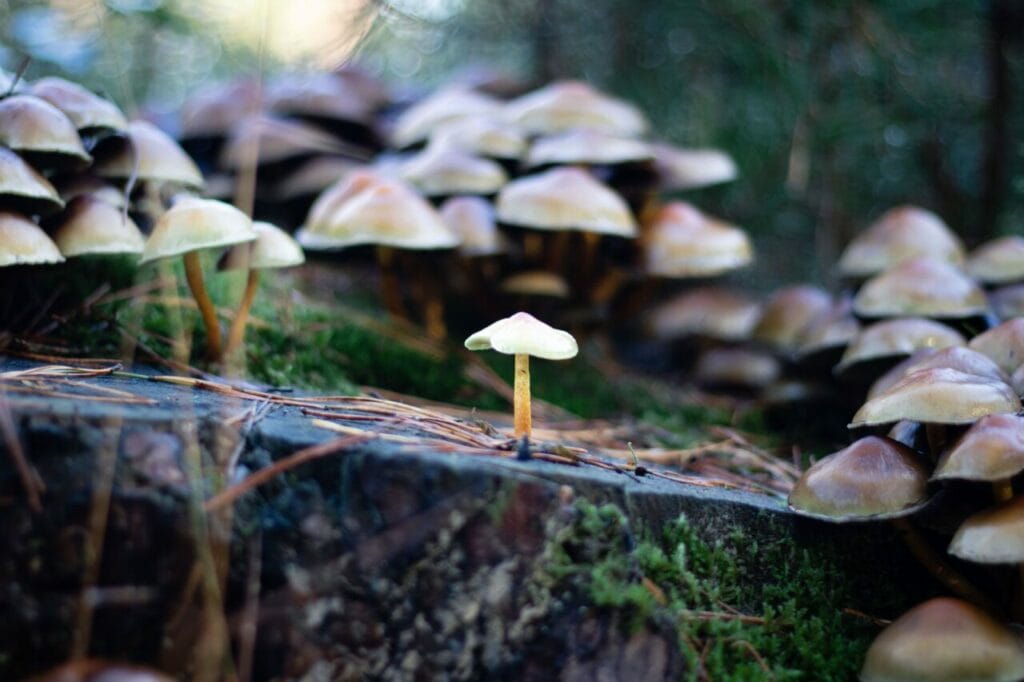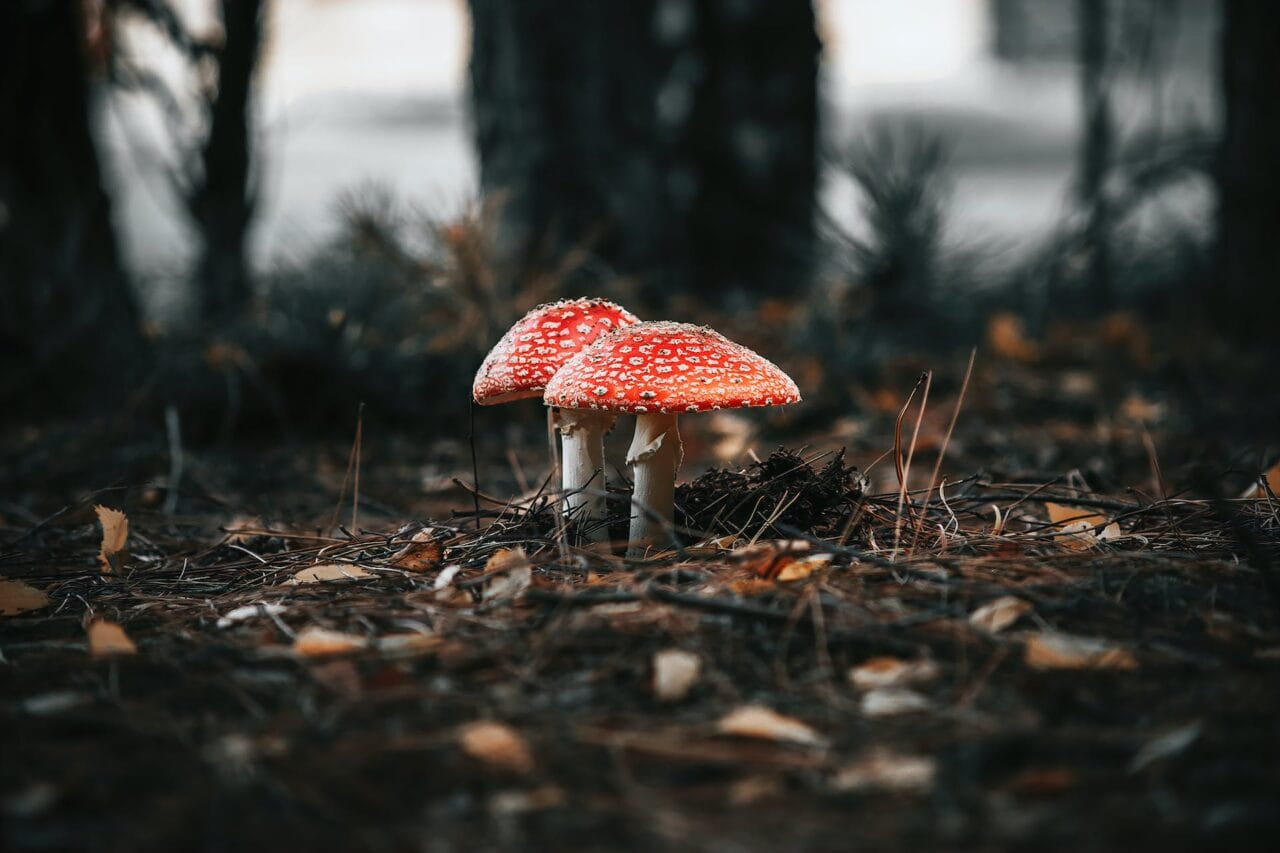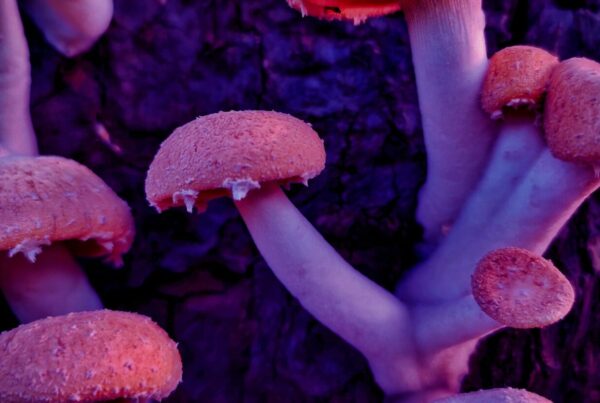There is a surge of interest in psilocybin due to studies exploring its potential to treat mental health conditions like anxiety and addiction. However, procuring psilocybin remains a challenge. The number of laboratories and shroom delivery services supplying magic mushrooms is limited, and the cost can be rather high.
This article delves into the evolution of psilocybin, its current status, and the potential advantages it could provide for those seeking therapeutic benefits.
[toc]Main Takeaways:
- Shroom cultivation requires considerable effort and careful monitoring to avoid contamination during the inoculation phase.
- Psilocybin brings about a psychedelic experience by interacting with different brain areas, particularly the serotonin receptors.
- Psilocybin causes a slight increase in heart rate that normalizes soon after consumption, and usually doesn’t lead to other negative effects.

Ensuring the Highest Quality of Magic Mushrooms
Magic mushrooms naturally grow in diverse environments such as manure-rich meadows, leafy temperate forests, grasslands, and woodlands. Traditionally, people have sought out these areas to collect these mushrooms for medicinal purposes or to use them in spiritual and religious rituals.
Conventional Approach
Currently, the traditional practice of harvesting mushrooms in these natural habitats is less common. This shift could be attributed to the advent of alternative methods such as cultivation or the availability of magic mushrooms for purchase online.
Mushrooms found in the wild tend to be less potent than those grown in labs, which are carefully nurtured under controlled circumstances. Furthermore, foraging in the wild carries the risk of accidentally picking a poisonous species.
Contemporary Approach
The process of shroom production starts with a detailed procedure that involves the careful cultivation of spores to maturity. This method requires a
The inoculation phase of mushroom cultivation requires a significant investment of time and attention to detail. This is done to mitigate potential contamination. When the mushrooms are ready for harvest, they are generally dried by cultivators or labs to increase their shelf life. Fresh mushrooms last only a few days, but when dried, they can be stored for several months, even up to a year.
Manufacturers convert dried mushrooms into various forms such as microdose capsules, edibles, tinctures, and beverages. These are then distributed throughout Canada via magic mushroom delivery services.
Harnessing the Benefits of Psilocybe Cubensis or Magic Mushrooms
Researchers conduct clinical trials on mushrooms primarily to study their impact on mental health and mood disorders, as suggested by anecdotal evidence. Investigations into these effects vary from microdosing with capsules to experiencing a mushroom trip with dried mushrooms or chocolate edibles.
Upon ingestion, psilocybin metabolizes into psilocin, a compound that behaves similarly to serotonin. Serotonin is a neurotransmitter that plays a critical role in mood regulation. Psilocin interacts with several brain areas, particularly the serotonin receptors, to induce a psychedelic experience.
People who undergo psilocybin therapy often report transformative changes that extend beyond heightened senses and visual alterations. These experiences can result in a substantial shift in self-perception and a profound change in personal perspective, often marked by deep insights.
Depression and Suicidal Propensities
A study published in the Journal of Psychopharmacology explored the effects of a psychedelic experience on individuals grappling with depression and suicidal thoughts. Most participants described their experience with psilocybin as highly meaningful and highlighted its potential transformative impact on their lives. Patient engagement is crucial in mental health interventions, and such high satisfaction levels could improve therapy effectiveness.
Safety Profile
Researchers also study the safety profile of psilocybin in addition to its effects on depression and anxiety. According to a study in JAMA Psychiatry, participants who consumed psilocybin displayed a slight increase in heart rate and blood pressure two hours post-ingestion. However, further analysis using Holter monitoring revealed no significant increase in the risk of cardiac arrhythmias in the psilocybin group compared to the niacin group. The study also found
No significant psychological distress was observed among users.





